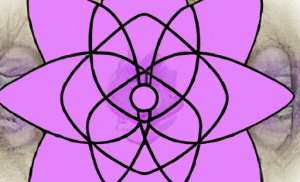How Does Laughter Therapy Work, And Is It Effective In Reducing Stress?
laughter therapy, a unique approach to stress reduction, is gaining popularity for its remarkable benefits. By incorporating humor and laughter into therapeutic sessions, this technique aims to improve overall well-being and promote relaxation. But how does laughter therapy actually work, and can it truly alleviate stress? In this article, we will explore the science behind this laughter-filled approach and examine its effectiveness in reducing stress. So get ready to discover the power of laughter and its potential to transform your stress levels.

What is Laughter Therapy?
Laughter Therapy, also known as laughter yoga or humor therapy, is a therapeutic approach that aims to improve overall well-being and reduce stress levels through the intentional practice of laughter. It involves techniques and activities designed to induce laughter, such as laughter exercises, games, and role-playing.
Definition of Laughter Therapy
Laughter therapy can be defined as a therapeutic technique that utilizes humor and laughter to promote physical and psychological health. It is based on the premise that laughter has numerous physiological and psychological benefits and can be used as a tool to enhance overall well-being.
Historical background
Laughter therapy has roots in ancient traditions, with evidence of its use in various cultures throughout history. In ancient Greece, physicians like Hippocrates recognized the healing power of laughter and used it as a therapeutic tool. In the 20th century, Dr. Hunter “Patch” Adams, a physician and social activist, popularized the use of humor and laughter in medical settings, inspiring the modern practice of laughter therapy.
Goals and principles of Laughter Therapy
The primary goal of laughter therapy is to promote physical, emotional, and social well-being through the cultivation of laughter and humor. The principles of laughter therapy include embracing childlike playfulness, fostering a positive mindset, connecting with others through laughter, and embracing the healing power of humor.
Theories Behind Laughter Therapy
Laughter therapy is supported by various psychological, physiological, and cognitive theories that explain its effectiveness in promoting overall well-being.
Psychological theories
Psychological theories propose that laughter triggers positive emotions, such as happiness and joy, which counteract negative emotions and reduce stress. It is believed that laughter releases neurochemicals, such as endorphins and dopamine, which contribute to a sense of well-being and relaxation.
Physiological theories
Physiological theories suggest that laughter induces physiological changes in the body, such as increased heart rate and improved oxygenation. These changes have a positive impact on various bodily systems, including the cardiovascular, respiratory, and immune systems.
Cognitive theories
Cognitive theories emphasize the cognitive processes involved in laughter therapy. Laughter can shift one’s perspective, promote mental flexibility, and enhance problem-solving abilities. It can also improve cognitive functioning, memory, and creativity, leading to an overall improvement in psychological well-being.
Benefits of Laughter Therapy
Laughter therapy offers a wide range of benefits, both physical and psychological, that contribute to improved overall well-being.
Reduction in stress levels
Laughter has been shown to reduce the levels of stress hormones, such as cortisol, while increasing the production of endorphins, which are natural mood enhancers. As a result, laughter therapy helps individuals manage stress more effectively and experience relaxation and a sense of calm.
Enhancement of mood
Engaging in laughter therapy can significantly improve mood and increase feelings of happiness and joy. Laughter releases neurochemicals that promote positive emotions and alleviate symptoms of anxiety and depression, leading to an overall improvement in mood.
Boosting the immune system
Studies have shown that laughter therapy can enhance immune function by increasing the production of antibodies and activating immune cells. This can lead to a strengthened immune system, reducing the risk of illness and promoting overall health.
Mechanism of Action
Understanding the mechanisms through which laughter therapy works can shed light on its therapeutic effects.
Release of endorphins
Laughter stimulates the release of endorphins, which are natural painkillers and mood enhancers. Endorphins promote feelings of pleasure and relaxation, reducing pain and stress.
Decrease in stress hormones
Laughter has been found to decrease the production of stress hormones, such as cortisol. Lower cortisol levels result in reduced physiological and psychological stress, leading to a state of greater relaxation and well-being.
Improvement in cardiovascular function
When we laugh, our heart rate and blood pressure increase temporarily, followed by a period of deep relaxation. This process acts as a form of cardiovascular exercise, improving blood circulation and overall cardiovascular health.

Physical Effects of Laughter Therapy
Laughter therapy has several physical effects on the body, contributing to improved physiological functioning.
Muscle relaxation and tension relief
During laughter, the muscles in the body contract and relax, leading to a release of tension and a sense of physical relaxation. This can help alleviate muscle stiffness and promote overall relaxation.
Increased oxygen supply to the brain
Laughter involves deep breathing, which increases the supply of oxygen to the brain. This enhanced oxygenation promotes brain function, concentration, and mental clarity.
Enhanced respiratory function
Laughter strengthens the respiratory muscles and improves lung capacity. It can increase airflow, improve oxygen exchange, and promote better respiratory function, benefiting individuals with respiratory conditions.
Psychological Effects of Laughter Therapy
Laughter therapy has profound psychological effects, contributing to improved mental well-being and emotional balance.
Reduction of anxiety and depression symptoms
Laughter therapy has been shown to significantly reduce symptoms of anxiety and depression. It releases neurochemicals that elevate mood, promotes positive thinking, and reduces the impact of negative thoughts and emotions on mental health.
Improvement in self-esteem
Engaging in laughter therapy can boost self-esteem and self-confidence. The positive emotions associated with laughter enhance self-perception and promote a more positive self-image.
Promotion of social connection
Laughter is a universal language that fosters social connection and strengthens relationships. Participating in laughter therapy activities promotes social interaction, enhances communication skills, and helps individuals connect with others on a deeper level.

Use of Laughter Therapy in Medical Settings
Laughter therapy has been increasingly utilized in medical settings to complement traditional treatments and improve overall patient well-being.
Cancer treatment support
Laughter therapy has shown promise in helping cancer patients cope with the physical and emotional challenges associated with the disease. It can reduce stress, alleviate treatment side effects, enhance emotional well-being, and improve quality of life.
Cardiac rehabilitation
Laughter therapy has been integrated into cardiac rehabilitation programs as a complementary therapy. It can help reduce stress and anxiety related to heart health, promote cardiovascular fitness, and improve overall psychological well-being.
Pain management
Laughter therapy has been found to be effective in reducing pain perception and increasing pain tolerance. It activates the body’s natural painkillers, enhances mood, and distracts individuals from their pain, providing temporary relief.
Laughter Therapy Techniques and Activities
Laughter therapy incorporates a variety of techniques and activities designed to induce laughter and promote well-being.
Laughter Yoga
Laughter Yoga combines laughter exercises with deep breathing and stretching techniques. It involves guided laughter sessions, often in groups, where participants engage in playful activities and laughter exercises to stimulate laughter.
Humor therapy
Humor therapy involves the use of humor, such as jokes, funny stories, and comedic media, to evoke laughter and promote overall well-being. It can be used in individual or group settings to create a positive and light-hearted atmosphere.
Clowning
Clowning is a popular form of laughter therapy that involves the use of humor, physical comedy, and clowning techniques to engage and entertain individuals. Clown practitioners use humor and laughter to create a joyful and uplifting experience.
Effectiveness of Laughter Therapy
Numerous studies and research support the effectiveness of laughter therapy in reducing stress and promoting overall well-being.
Scientific research and studies
Scientific research has consistently demonstrated the positive effects of laughter therapy on various aspects of physical and mental health. Studies have shown its effectiveness in reducing stress levels, improving mood, enhancing immune function, and decreasing pain perception.
Case studies and testimonials
Numerous case studies and individual testimonials provide anecdotal evidence of the positive impact of laughter therapy. Many individuals report significant improvements in their physical and mental well-being after engaging in laughter therapy sessions or activities.
Comparison with other stress reduction interventions
Comparative studies have found laughter therapy to be as effective, if not more effective, than other stress reduction interventions, such as relaxation techniques and mindfulness practices. Its ability to induce laughter and promote positive emotions sets it apart as a unique and enjoyable stress reduction tool.
Considerations and Limitations
While laughter therapy offers numerous benefits, it is important to consider certain factors and limitations.
Individual differences and preferences
Different individuals may respond differently to laughter therapy based on their personal inclinations, cultural backgrounds, and preferences. Some individuals may find certain humor styles or laughter exercises more effective or enjoyable than others.
Time commitment and accessibility
Engaging in laughter therapy requires a certain level of time commitment, as regular practice and participation in laughter therapy sessions are recommended for optimal benefits. It may also be important to consider the accessibility and availability of laughter therapy resources and practitioners in some areas.
Effects on specific populations
While laughter therapy is generally beneficial for most individuals, it is important to consider its effects on specific populations, such as individuals with certain medical conditions or physical limitations. It may be necessary to adapt laughter therapy techniques or seek guidance from healthcare professionals when working with these populations.
In conclusion, laughter therapy is a valuable and enjoyable therapeutic approach that offers various physical and psychological benefits. Its ability to reduce stress levels, enhance mood, and improve overall well-being has been supported by scientific research, case studies, and individual testimonials. By embracing the power of laughter and humor, laughter therapy has the potential to positively impact individuals of all ages and backgrounds, promoting a healthier and happier life.

















